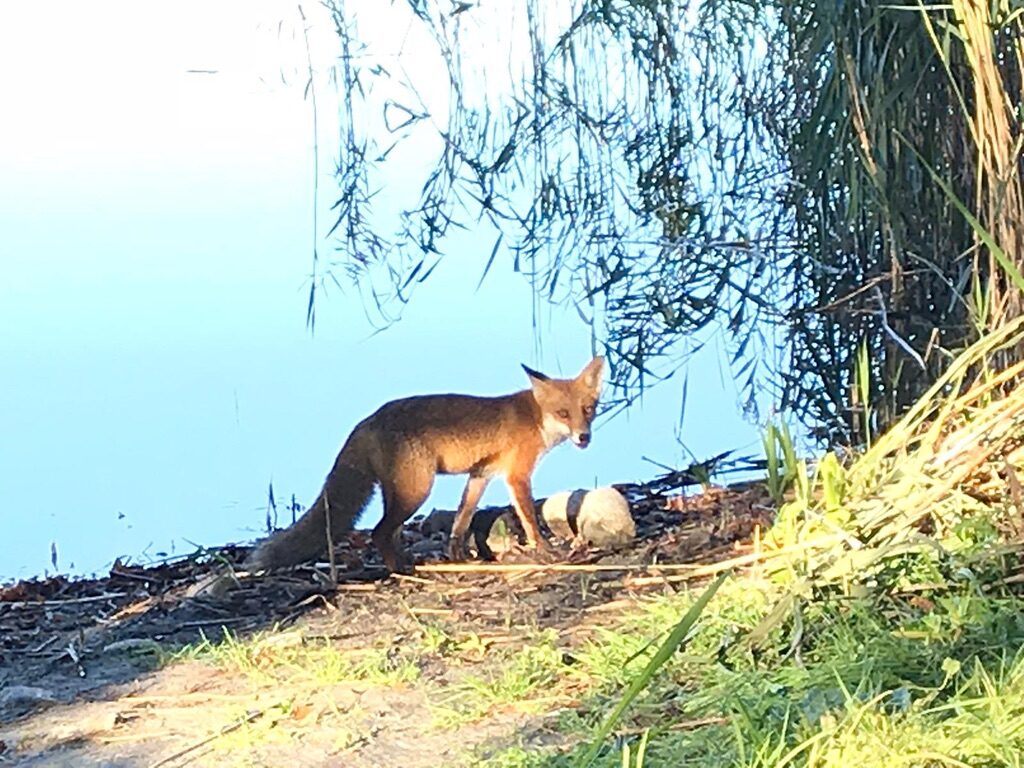Why should I get involved in environmental protection?
Human activity causes more carbon dioxide (CO2) to enter the atmosphere, which increases the natural greenhouse effect. This causes additional warming of the earth’s surface. This is known as the man-made greenhouse effect.
This warming has many serious consequences, including droughts, heat waves, extreme weather events, warming of the oceans, rising sea levels and species extinction.
To stop this development, we must become climate-neutral so that the earth does not heat up by more than 1.5 degrees. To achieve this, CO2 emissions must be avoided and reduced.

Picture: Das Klimabuch, Gonstalla
How can my actions make a difference?
Are you wondering how we can quickly reduce emissions worldwide and what contribution you can make? Reducing your own carbon footprint is a good first step and, at best, saves 10 tons of CO2 emissions per year. However, 37 billion tons of CO2 were emitted worldwide in 2022.
So let’s take a look at your climate handprint. It describes how you can initiate major changes and thus also reduce the carbon footprint of others.
What can I do specifically?
If you want to protect nature, then the following areas are of interest to you:
- Reforestation of forests by planting trees (trees store CO2)
- Collecting rubbish and recycling it
- Maintaining the school garden or creating a school garden
- Bringing bees to school and setting up a beekeeping club
- You can find even more ideas here
Climate protection is about reducing man-made influences on the climate:
- Attention talent! Analyse and reduce your own CO2 emissions
- Analyse and reduce the C02 emissions of your school/university
- Make your school an environmental school or a Schools for Earth school
- Become a climate ambassador (link) or Greenpeace Changemaker
General commitment to environmental protection:
- Take a political stand for environmental protection in your own city (start and circulate petitions, organise and hold demonstrations/events, join a political party and submit motions)
- Collect donations for or with a non-profit organisation
- Attention talent! Further education through courses (see further education list) or books (see book list)
- Involvement in a nature or environmental protection organisation (Nature Conservation Youth, Greenpeace, WWF Youth, GoNature)
We have collected a few more ideas for your green gold project here:
- WWF Youth Camp
- Mountain forest projects in Austria
- Environmental construction sites in Austria
- Sea Turtle Protection in Greece
- WWOOF – Living and learning on ecological farms
Further materials
Are you ready to get started? Then find out here!
Further education programmes:
- WWF Academy
- Udemy: Understand climate change – and have your say
- Stanford/ edX / cousera (simply search for climate, environment or sustainability, in English if necessary)
- One Planet Hub from WWF
- Adult education centre climate fit course from WWF
Books:
- Henne: Miserable crisis (2024)
- Baunach: Hands up, climate change (2023)
- Koschak: Heat, floods and tiger mosquitoes (2023)
- Thunberg: The climate book (2022)
- Neubauer: We still have a choice (2021)
Environmental protection starter pack:
- Germanwatch handout: Reducing resource consumption
- Handout: Agricultural and food transition
- Germanwatch poster: Enlarging the handprint
Your expedition is coming up? Then find out here how you can plan and realise it in an environmentally friendly way.
Sustainable expedition




